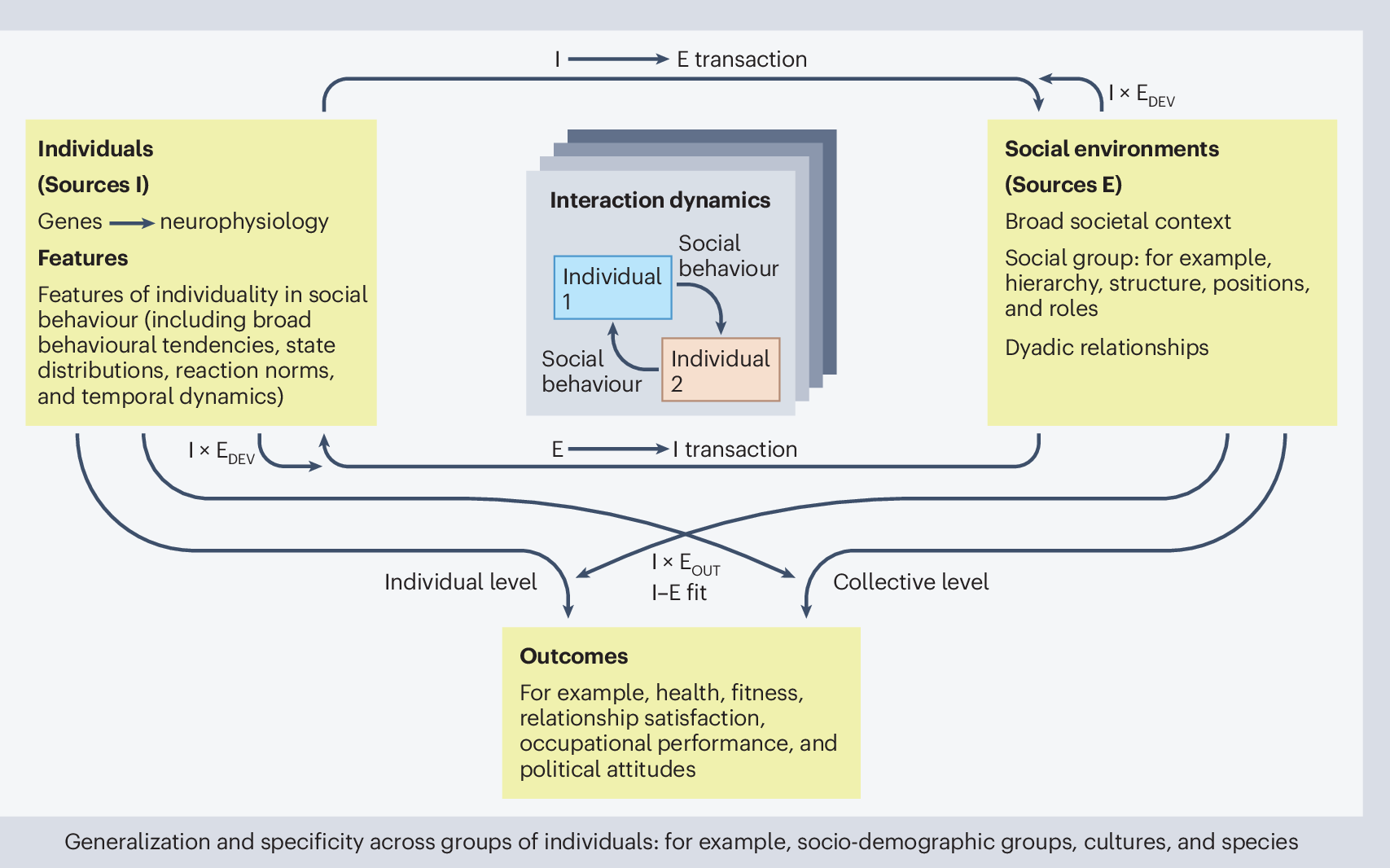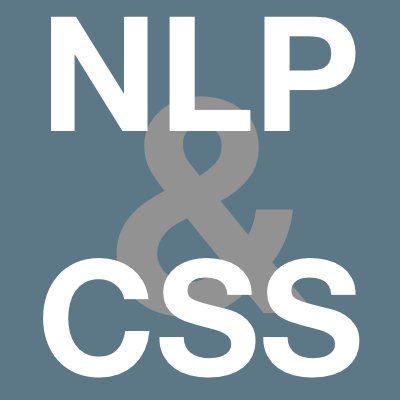
Individuals are very different in their social behaviour. In this Perspective Kuper and colleagues examine interdisciplinary evidence for why this is and what it means for our understanding of individual and collective human behaviour. nature.com/articles/s4156…
New research finds that conservatives tended to endorse moral absolutism, whereas liberals tend to endorse moral relativism. Moral absolutists are more likely to support banning practices they deem immoral psycnet.apa.org/record/2026-54…
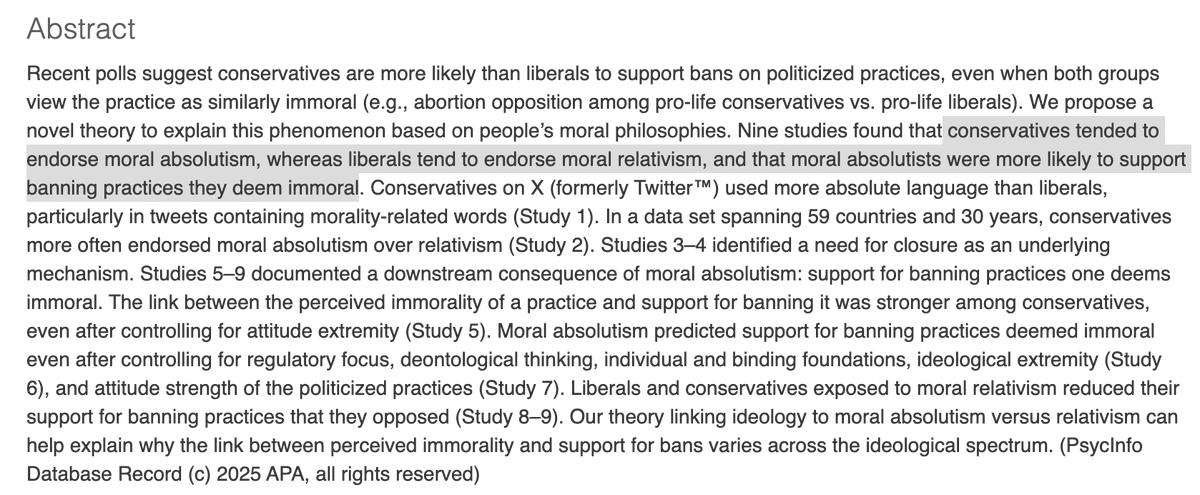
🚨 New working paper! 🚨 Happy to share my new data on affective polarization by party across states, CDs, counties, and towns from 2009-23. Key point: polarization is not just an individual trait... contexts and electorates can be "polarized" too! 1/ papers.ssrn.com/sol3/papers.cf…


Very interesting!

🚨 New paper alert 🚨 Using LLMs as data annotators, you can produce any scientific result you want. We call this **LLM Hacking**. Paper: arxiv.org/pdf/2509.08825

🇺🇸 Can watching dialogue across party lines reduce polarisation? ➡️ L-O Ankori-Karlinsky, @robert_a_blair, J. Gottlieb & @smooreberg show that a documentary of an intergroup workshop reduces polarisation and boosts faith in democracy cambridge.org/core/journals/… #FirstView


1st paper from my lab out @CommunicationsPsychology @CommsPsychol nature.com/articles/s4427… We show an alternative way to understand how people mentally represent other people's characteristics, namely high-dimensional networks, beyond the popular latent factor models.
🚨3rd preprint from my lab out! with my awesome grad @LuJunsong19474🌟 How do people mentally represent numerous inferences about others?🤯 Prior work proposed low-dimensional rep with latent dimensions We show high-dimensional network brings new insights🧵👇…
Currently in FirstView: In “Attention and Political Choice: A Foundation for Eye Tracking in Political Science,” Libby Jenke and Nicolette Sullivan explain what eye tracking allows researchers to measure and how these measures are relevant to political science questions.

This is a useful reading list on recent advances in econometrics.

what are large language models actually doing? i read the 2025 textbook "Foundations of Large Language Models" by tong xiao and jingbo zhu and for the first time, i truly understood how they work. here’s everything you need to know about llms in 3 minutes↓
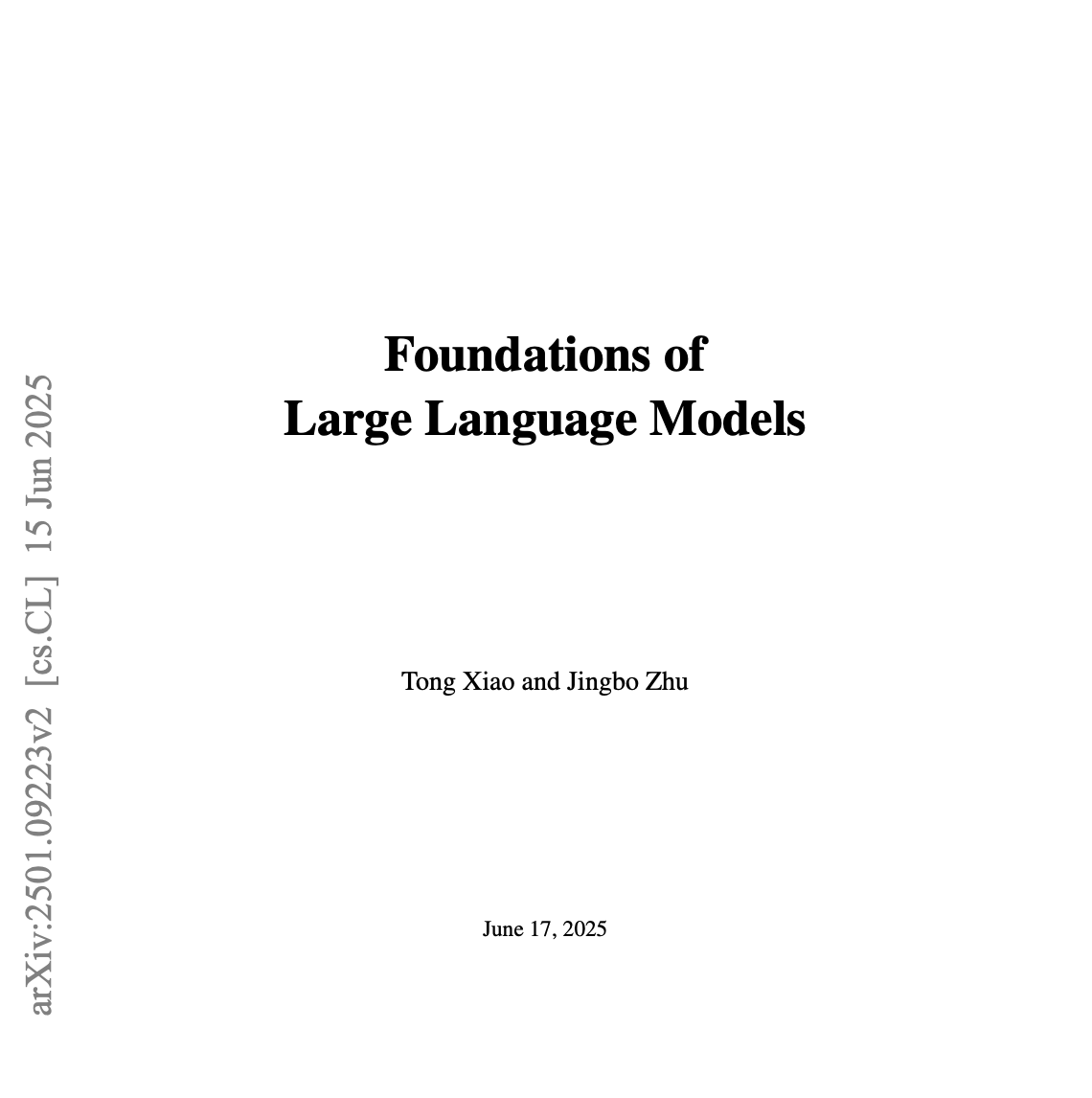
🚨 New paper in @ScienceAdvances Can changing how we argue about politics online improve the quality of replies we get? @THeideJorgensen, @a_rasmussen, and I use an LLM to manipulate counter-arguments to see how people respond to different approaches to arguments. Thread 🧵1/n

This research advances a mechanistic reward learning account of social learning strategies. Through experiments & simulations, it shows how people learn to learn from others, dynamically shaping the processes involved in cultural evolution. @DSchultner nature.com/articles/s4156…
🚨New paper in @TrendsCognSci 🚨 Why do some ideas spread widely, while others fail to catch on? @Jayvanbavel and I review the “psychology of virality,” or the psychological and structural factors that shape information spread online and offline. Thread 🧵(1/n)

Can large language models (LLMs) fairly annotate data on contentious topics? Our new paper dives into this question—looking at whether LLM-generated labels reflect diverse viewpoints or skew toward majority perspectives. The results are surprisingly nuanced. 🧵
An AI model (Llama 3.1 70B) fine-tuned on the results of 60,000 people in psychology experiments shows some real promise in using LLMs for studying human behavior. It predicts actual human behavior in held-out data & it generalizes to out-of-distribution tasks and experiments.
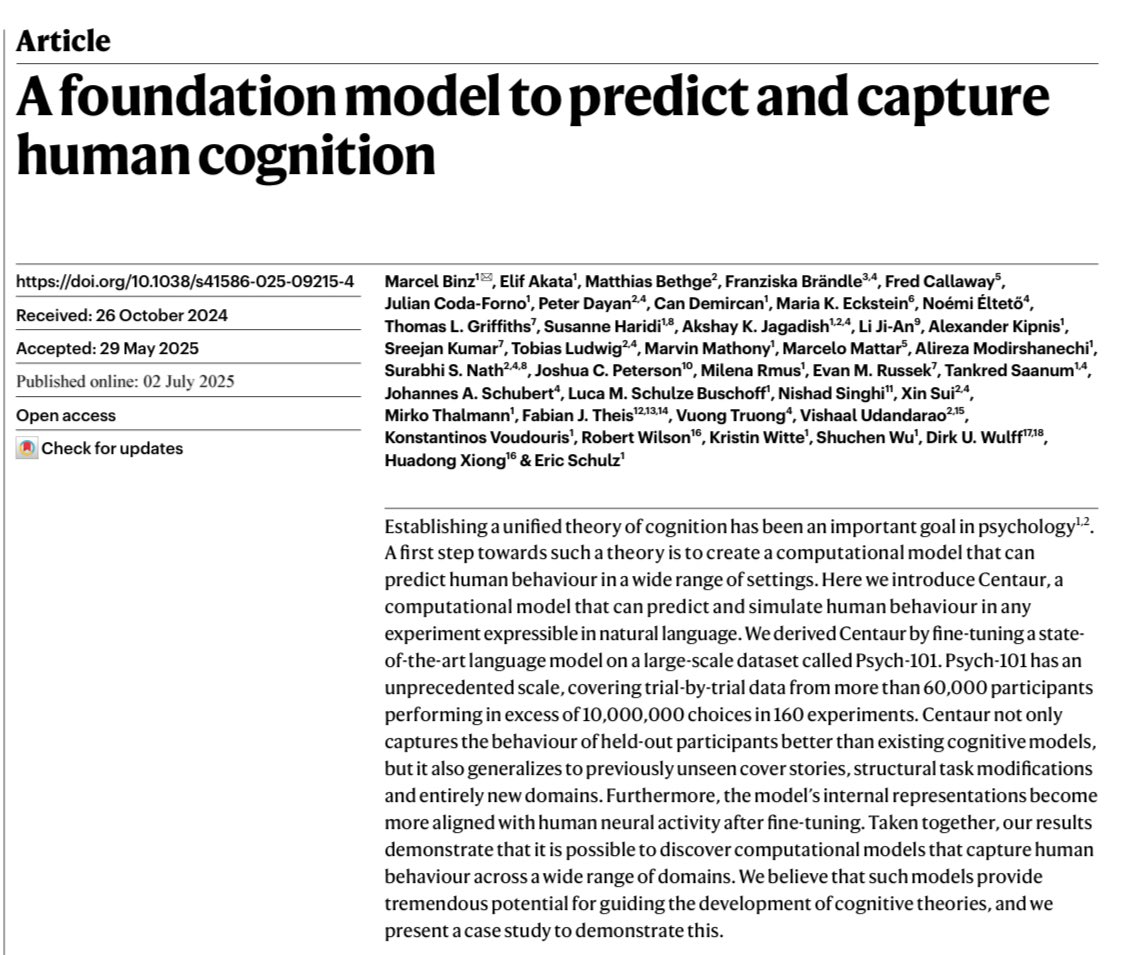

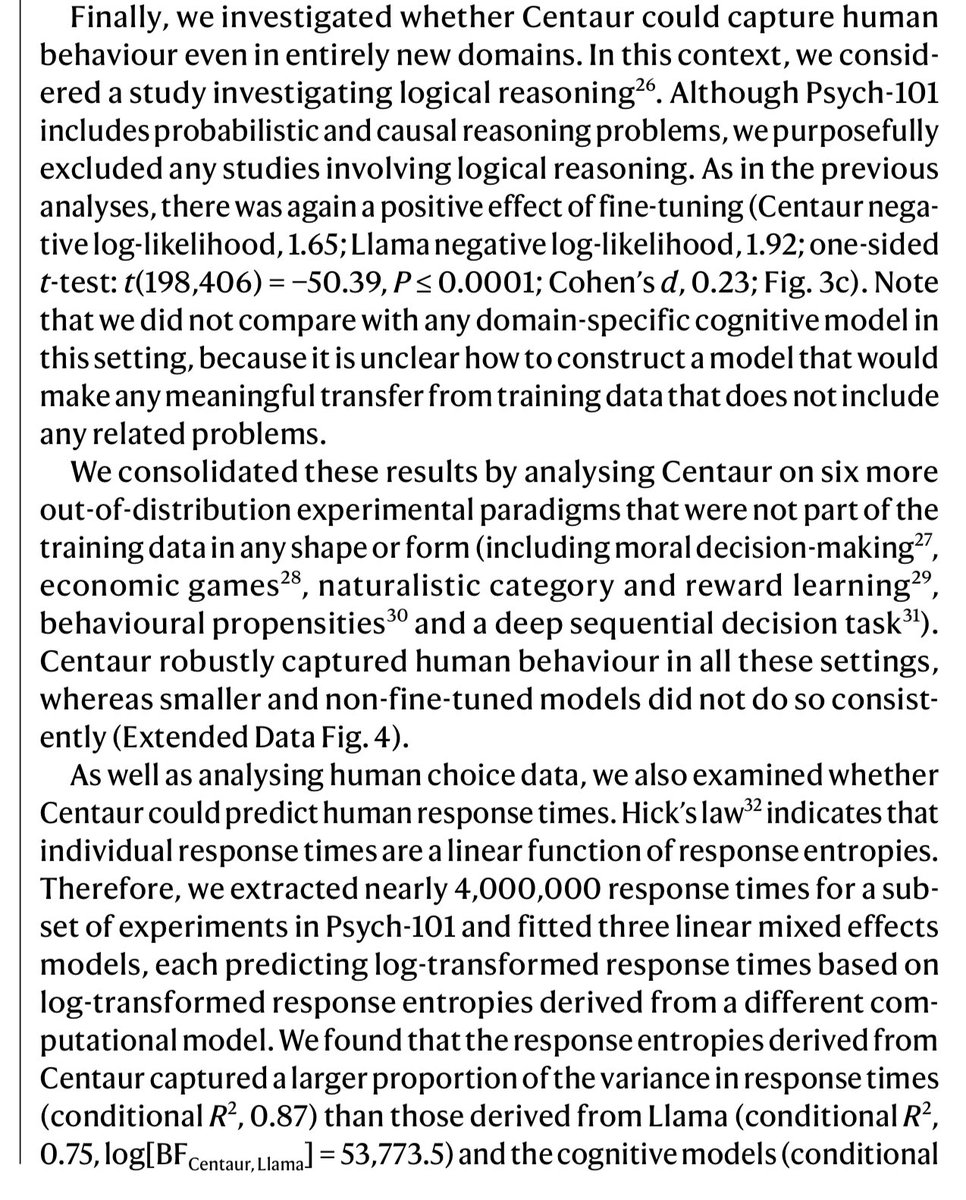

LLMs can effectively depolarize social media content while maintaining textual coherence, finds Santos et al., using a between-subjects experiment doi.org/10.1145/371786…
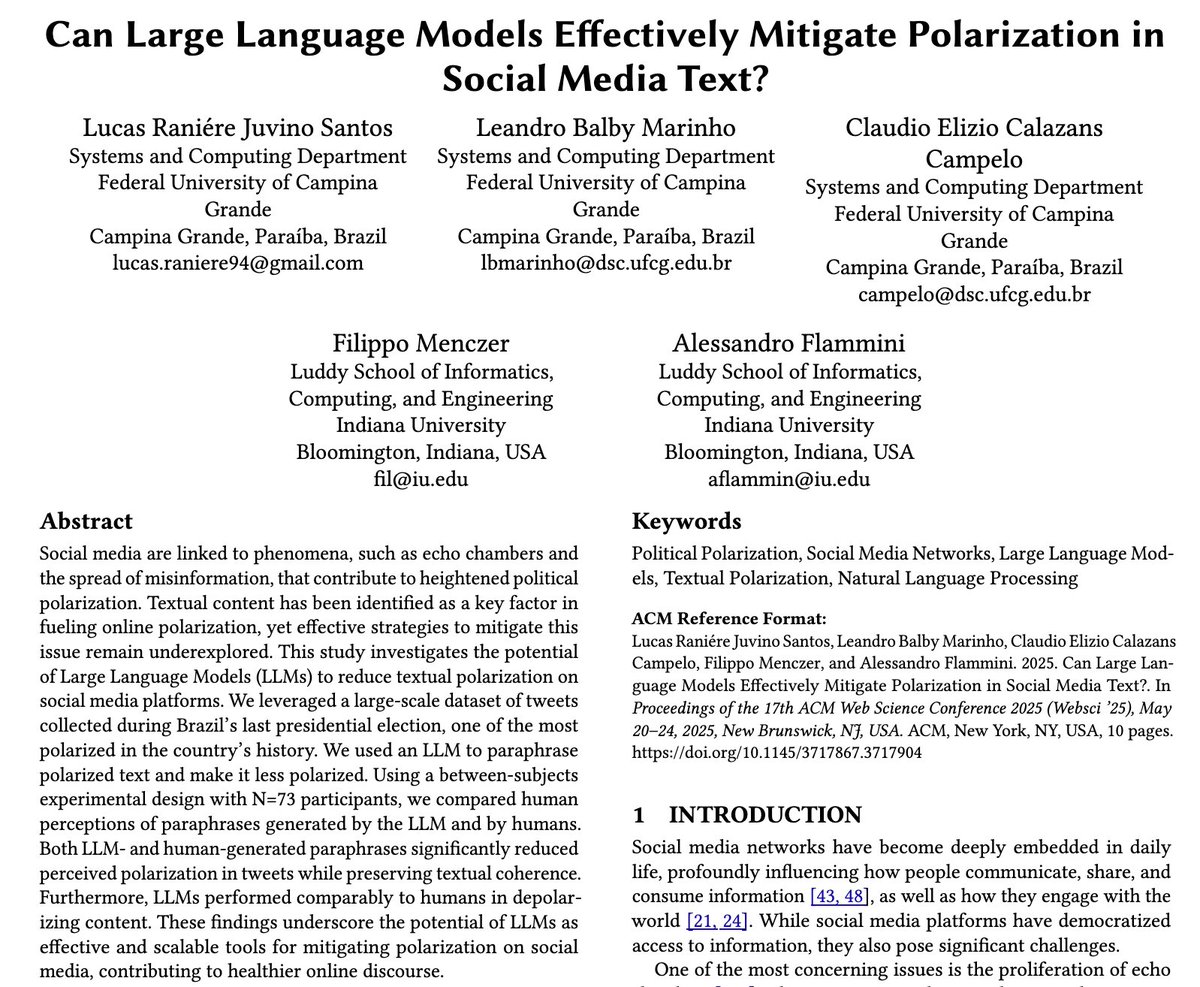



This is a stellar paper -- highly recommend if you want an incisive birds-eye view of AI + political science annualreviews.org/content/journa…
⁉️In survey experiments, should you ask covariates before the treatment? ➡️@asdurso @TabithaBonilla & G.Bogdanowicz study the effects of placing sensitive items in different parts of the survey flow and offer guidance on optimal question order cambridge.org/core/journals/… #FirstView


🧵 NEW PAPER - "Quantifying Narrative Similarity Across Languages" is live at SMR. We combine NLP w pairwise LLM evals to track ideas across media ecosystems and languages. We also figured out a way to eval unsupervised probs on widely understood supervised performance metrics.
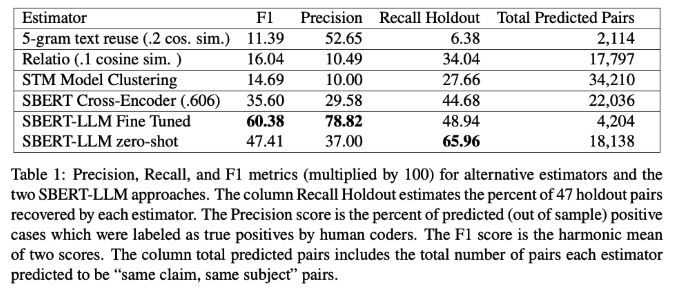
Interesting paper: 161 researchers in 73 research teams used the same data and hypothesis (immigration reduces support for social policies among the public), but arrived at different results and conclusions. Paper in PNAS
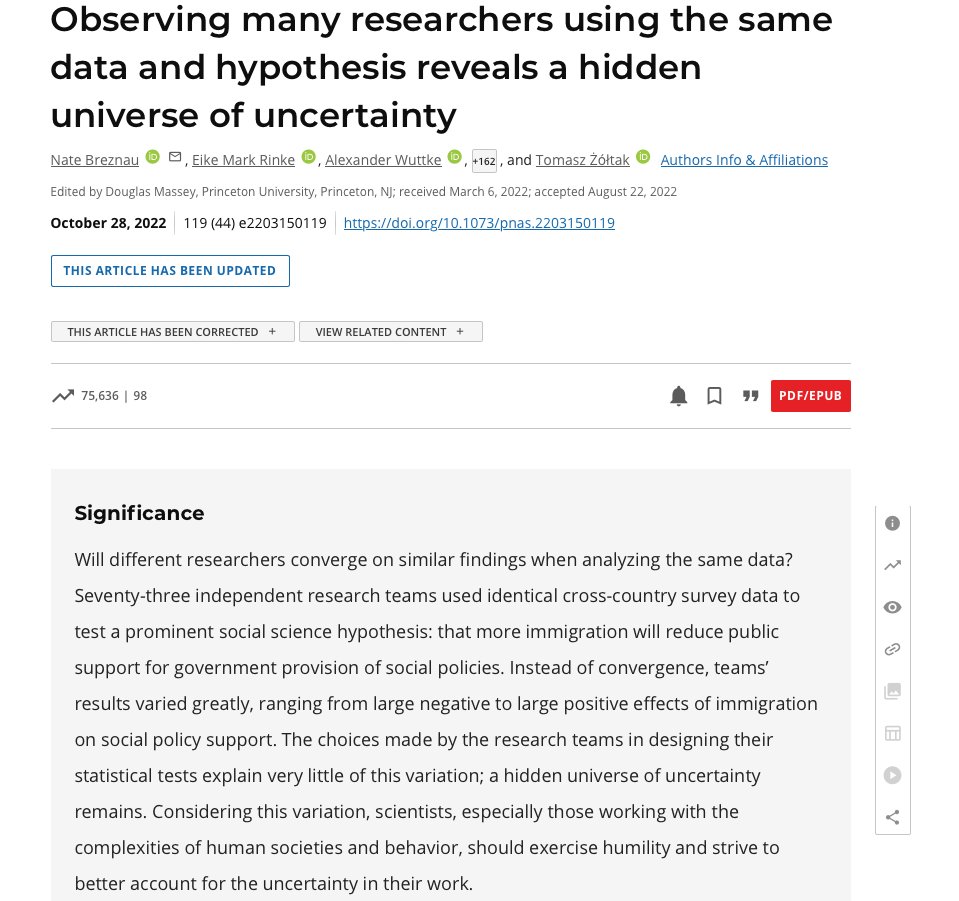
United States Trends
- 1. Ohtani 189K posts
- 2. Dodgers 234K posts
- 3. Dodgers 234K posts
- 4. Carson Beck 15.9K posts
- 5. $SAWA 1,445 posts
- 6. Miami 98.1K posts
- 7. Louisville 27.1K posts
- 8. Nebraska 17.3K posts
- 9. Brewers 53.4K posts
- 10. Babe Ruth 2,951 posts
- 11. NLCS 54K posts
- 12. #SmackDown 54.7K posts
- 13. #BostonBlue 7,668 posts
- 14. Rhule 4,398 posts
- 15. 3 HRs 9,673 posts
- 16. Minnesota 47.3K posts
- 17. George Santos 77.3K posts
- 18. 10 Ks 4,101 posts
- 19. Raiola 3,614 posts
- 20. Jeff Brohm 2,965 posts
Something went wrong.
Something went wrong.


